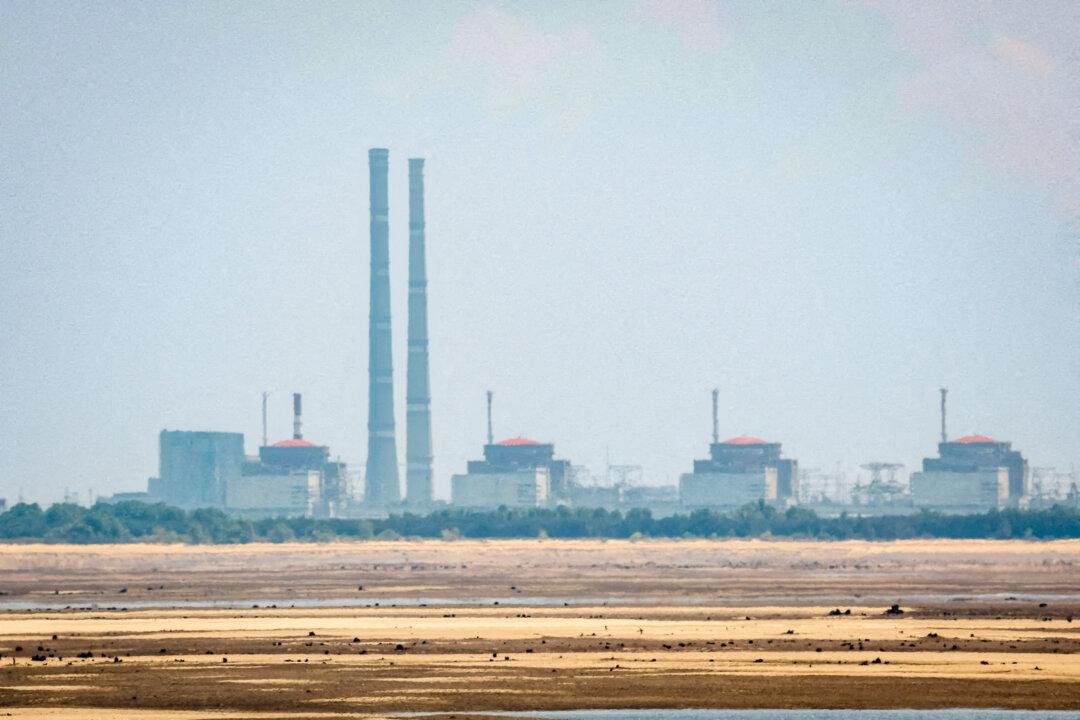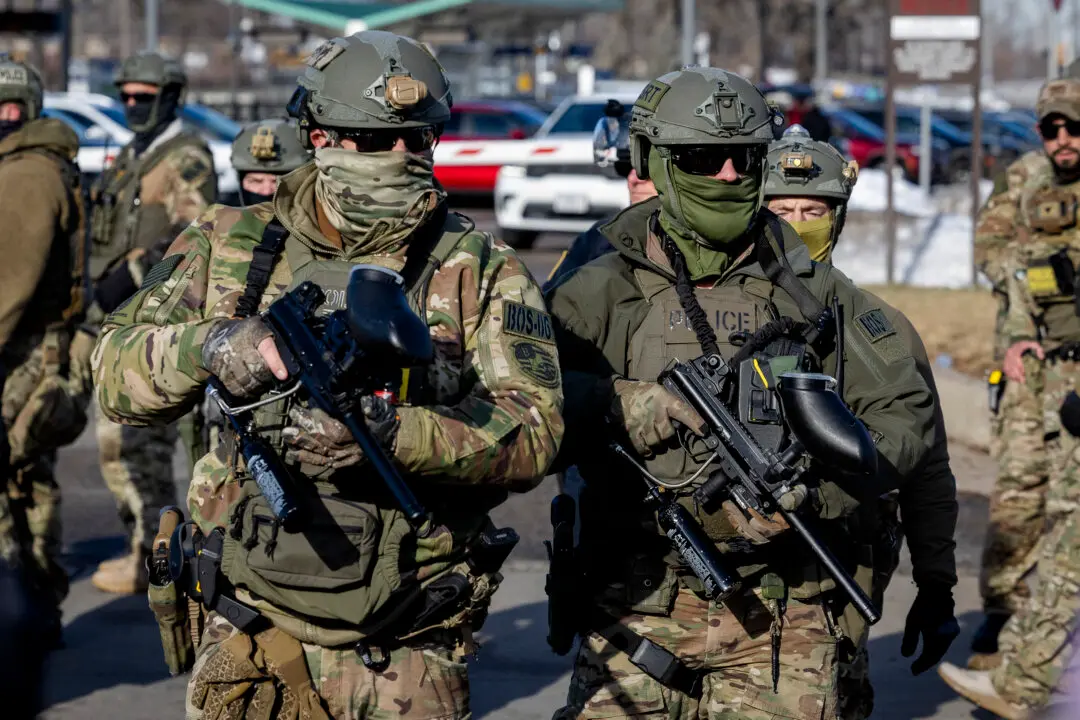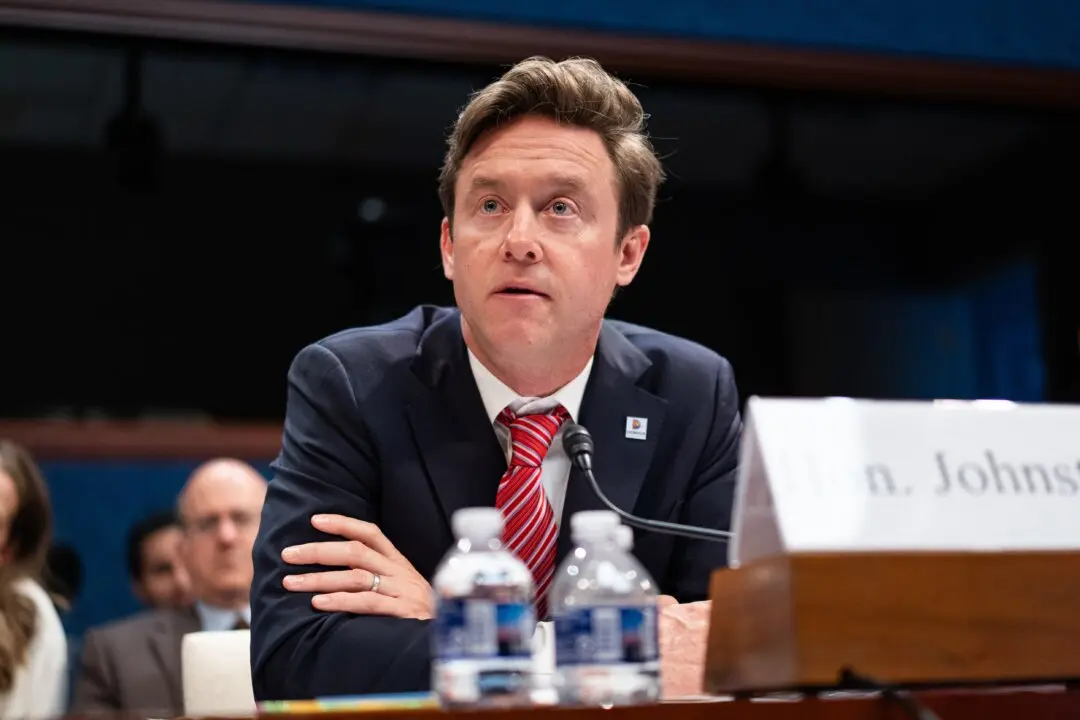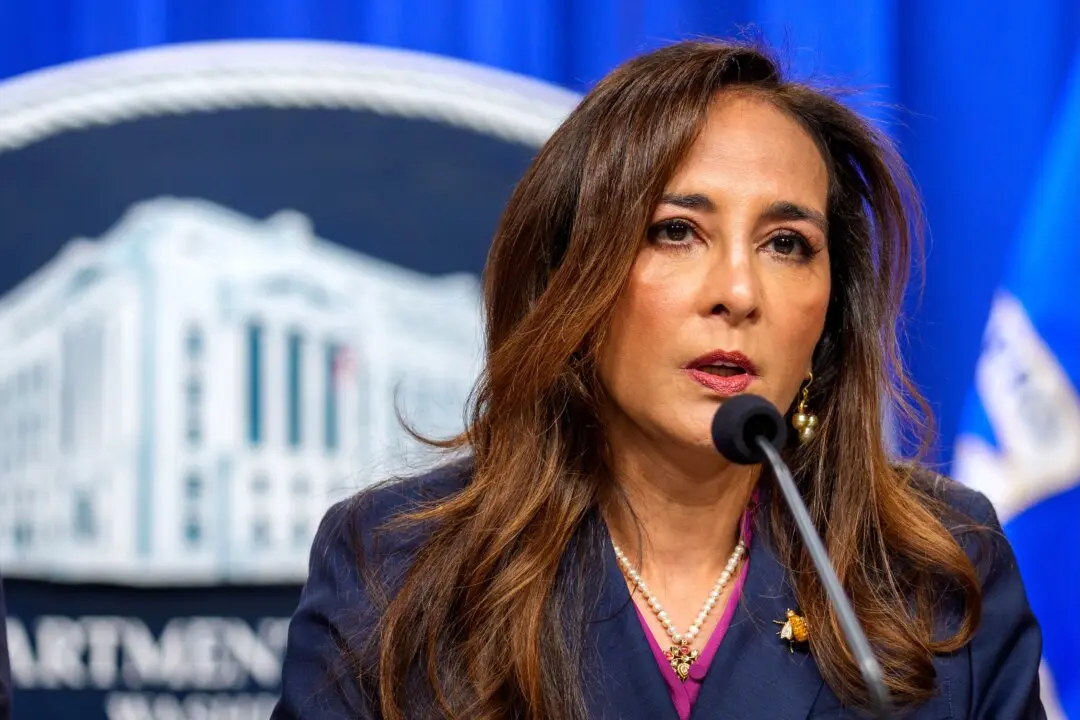Ukraine and Russia traded blamed on Sunday for a massive fire that erupted at the Zaporizhzhia nuclear power plant—the largest in Europe—in southern Ukraine, a region currently occupied by Russian forces.
The International Atomic Energy Agency (IAEA) said in a statement that its experts spotted “thick dark smoke” coming from the northwestern area of the plant on Aug. 11 after hearing multiple explosions.





